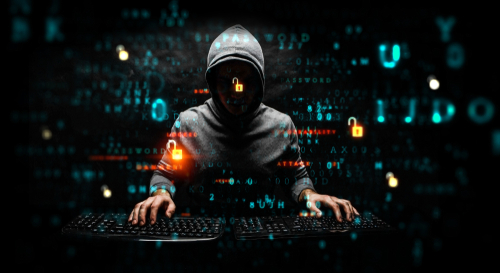
A harrowing cyberattack by the notorious ALPHV (BlackCat) group laid bare over 100 million individuals’ data in an unprecedented breach. It was the largest data breach in US history. Social Security numbers and health information were exposed.
Unprecedented Breach and Its Enormity
February 2024 saw the UnitedHealth Group suffer from the largest healthcare data breach recorded in U.S. history. The attack revealed sensitive information from over 100 million people, the crime executed by the ALPHV, also known as “BlackCat.” A substantial portion of Americans faced the repercussions as the event underscored significant vulnerabilities within healthcare cybersecurity systems. Operations, data privacy and protection measures were all simultaneously compromised.
The breach specifically targeted Change Healthcare, a major health payment processor within UnitedHealth’s subsidiaries. This entity collaborates with numerous insurers including Aetna, Anthem, Blue Cross Blue Shield, and Cigna. Compromised data comprised everything from billing information, medical diagnoses, and health insurance details, aggravating the already precarious state of healthcare data safety.
🚨 UPDATE Change Healthcare (OPTUM Group)
🌍 #ALPHV claim: https://t.co/2w9mAw43KD
🌍 #ransomhub claim: https://t.co/31Cd29i6hzIn February 2024, a ransomware attack on UnitedHealth Group’s #ChangeHealthcare compromised the health records of over 100 million people, marking one… https://t.co/OvxQRjwkpr
— ransomfeednews (@ransomfeednews) October 25, 2024
Security Failures and Their Consequences
Investigations revealed that this breach transpired due to stolen login credentials, missing multi-factor authentication (MFA) on Citrix remote access services acted as a catalyst. This glaring security shortfall subsequently prompted UnitedHealth to enforce mandatory MFA within their internal systems. An apology was not enough to undo the upheaval as systems from billing to prescriptions faced interruptions.
“Insurance company UnitedHealth Group is confirming a ransomware attack earlier this year affected the private data of over 100 million people.”
Although a substantial ransom payment of $22 million was delivered for a decryptor and assurance of data deletion, the hackers failed to honor their promise. A glitch compounded by the potential second ransom payment, highlighting persistent threats. Ramifications continue to unfold with a still active federal investigation and UnitedHealth tirelessly notifying affected stakeholders.
UnitedHealth says over 100M people had their data stolen in the February ransomware attack on Change Healthcare, the largest-ever US healthcare data breach (@lawrenceabrams / BleepingComputer)https://t.co/DMt8INudAh
📫 Subscribe: https://t.co/OyWeKSRpIMhttps://t.co/cqpcCoPgU6
— Techmeme (@Techmeme) October 25, 2024
Paths Forward and Mitigation Efforts
In response to this egregious breach, essential cybersecurity policy reassessments within healthcare sectors have been prompted. Strengthening defenses stands as a critical priority to prevent recurrence. The gravity of this attack has not only disrupted operational workflows but has also shed consequential light on the fragile state of healthcare cybersecurity infrastructure. Stakeholders and policymakers must now strive for robust solutions safeguarding patient privacy against similar threats.
The dialogue surrounding cybersecurity within healthcare settings has been irrevocably altered. The focus is shifting to incorporate more comprehensive, multi-layered protective measures and enforcing systems that ensure data security akin to guarding national interests. Time will tell how these rippling changes propel the healthcare landscape into a more secure future.












